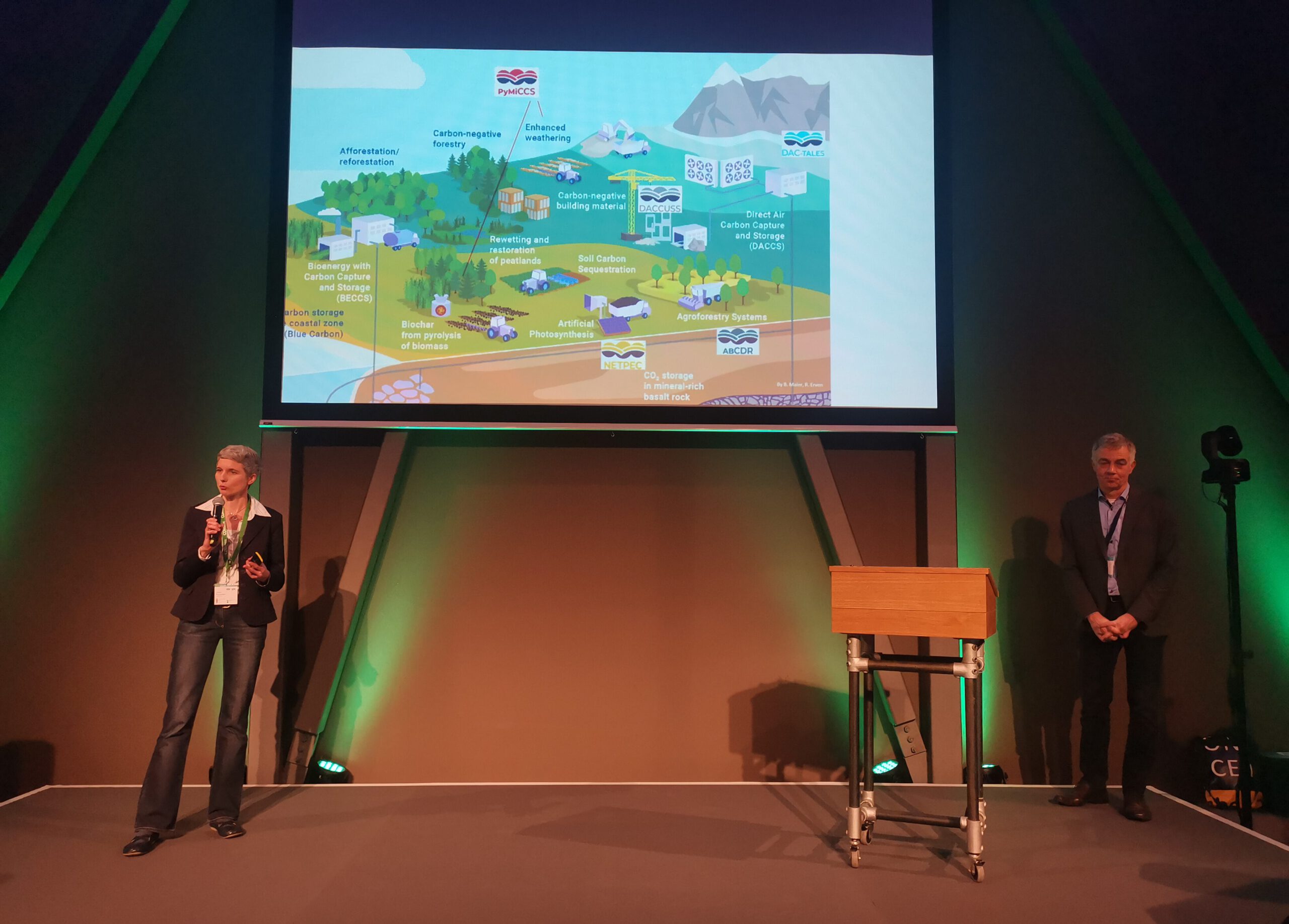Joint general assembly of CDRterra and CDRmare

The third general assembly of CDRterra takes place in Hanover from 12 to 15 March – this time together with the CDRmare research mission, which is investigating marine CO₂ removal methods and is also funded by the Federal Ministry of Education and Research. Around 250 scientists present interim results already achieved in the 16 joint projects and discuss possible synergies. Key questions include: What is the current state of research on CO₂ removal (carbon dioxide removal, CDR) on land and in the sea? And how can both research programmes jointly advance the state of knowledge on CDR?
Common goal: a comprehensive assessment framework for CDR methods
The CDRterra superordinate synthesis project CDRSynTra brings together the research results of all the consortia. Its aim is to comprehensively and uniformly assess the potential and impact of the various CDR methods on land and at sea – a highlight of the event is therefore the first draft of a suitable assessment framework.
“The assessment framework is intended to shed light on the fundamental feasibility as well as possible synergies and trade-offs that could be associated with the implementation of CDR methods,” says Prof. Dr. Julia Pongratz, coordinator of CDRterra and holder of the Chair of Physical Geography and Land Use Systems at Ludwig-Maximilians-Universität München (LMU).
“We are not only investigating what is technologically possible. Ecological, economic and political aspects are also important – right through to public perception and questions of justice. The dialog with the public is essential for the development of a low-risk and sustainable portfolio of CO₂ removal measures for Germany,” emphasises Dr. Felix Havermann, who is leading the joint work on the assessment framework as scientific coordinator of CDRterra at LMU.
CDR, CCS and co: dialog is important for pressing issues
With the CDR dialog in Munich in October 2023, CDRterra has already actively entered into dialog with business, politics, education and the public on the topic of carbon dioxide removal. As part of the annual conference, both research programmes also offer a hybrid information evening on carbon capture and storage (CCS) on Wednesday, March 13. Some CO₂ removal processes require this technology – but it is still very controversial in society. Interested citizens and representatives from politics and companies are invited to discuss the opportunities and risks of this technology with climate experts from CDRmare and CDRterra in the “Cavallo Reithalle” in Hanover.
Further details on the annual meeting and the progress made by the ten individual CDRterra joint projects can be found on our German website.